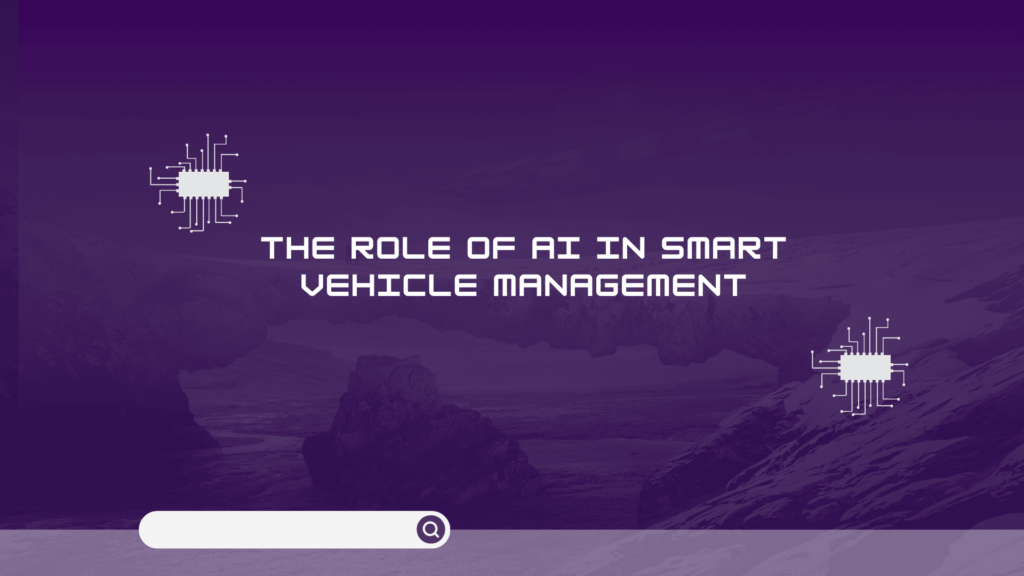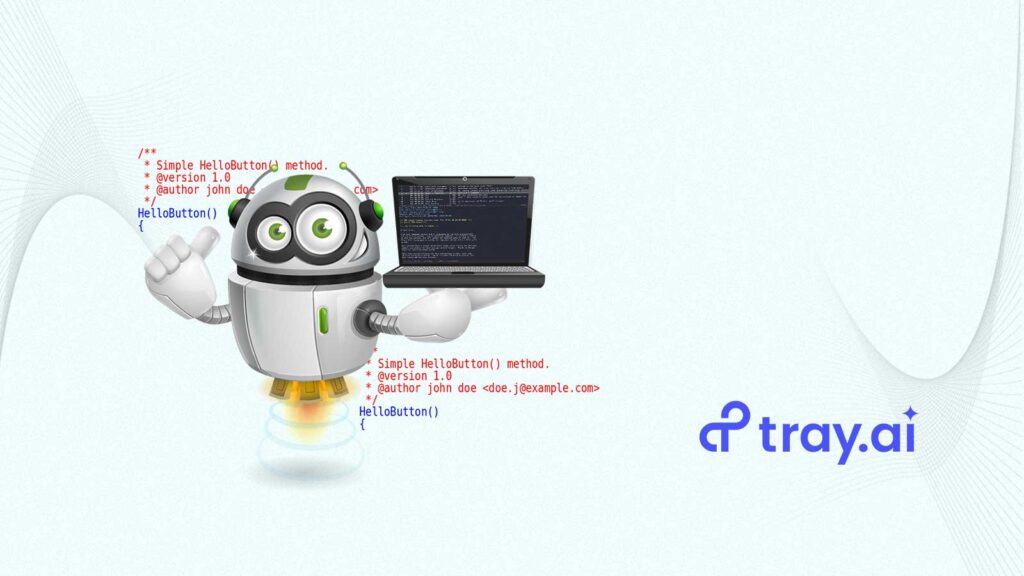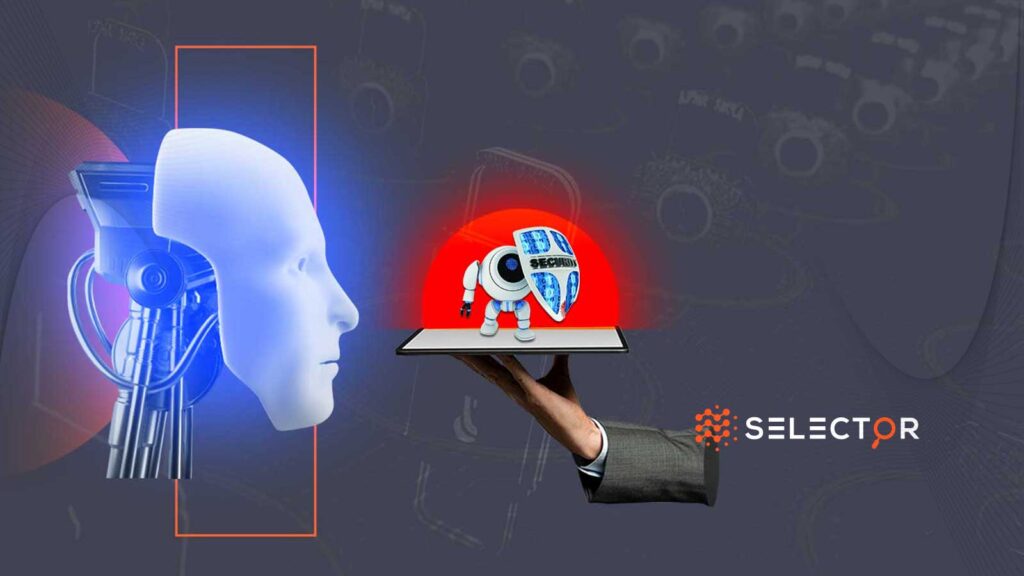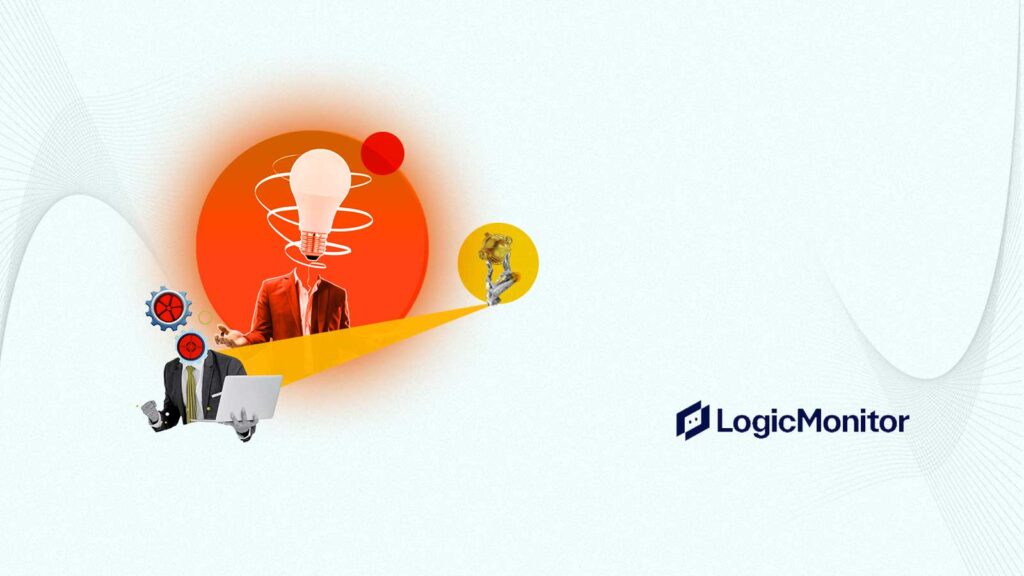AI in smart vehicle management is gaining traction due to its ability to process and analyze vast amounts of data—ranging from GPS coordinates and sensor readings to historical performance metrics and real-time statistics. In today’s rapidly evolving transportation and logistics sectors, efficient fleet management is essential for meeting the demands of a fast-paced, competitive market.
Fleet management goes beyond simple vehicle tracking; it encompasses the strategic oversight of vehicles to optimize performance, reduce costs, and increase productivity. Managing a fleet of commercial vehicles can be a complex and costly task for small businesses. In the broader landscape of transportation technology, fleet management systems have emerged as the dominant subsegment, driven by the growing demand for real-time vehicle tracking and route optimization. These systems enable fleet operators to monitor vehicle locations, track fuel usage, and receive maintenance alerts, all of which lead to significant cost savings and enhanced operational efficiency. The integration of AI and machine learning is taking these systems to the next level, enabling predictive maintenance, improving decision-making, and enhancing risk management by anticipating potential issues before they arise.
From keeping track of maintenance schedules to ensuring drivers follow safe driving practices, businesses face challenges that can eat into time and resources. However, with the right combination of connected technologies—including GPS tracking, dash cams, and artificial intelligence (AI)—small businesses can simplify fleet management, improve operational efficiency, reduce costs, and enhance driver safety. As logistics operations expand, businesses face increasing pressure to find innovative solutions for streamlined operations, delivering greater efficiency and sustainability.
This is where AI-powered smart vehicle management comes into play. Artificial Intelligence is fundamentally transforming the way fleets are managed by offering powerful capabilities that go far beyond traditional methods. AI integrates data from various sources—such as GPS tracking, telematics, sensors, and dashcams—to provide near real-time insights into all aspects of fleet operations.
In this article, we’ll explore how integrating GPS technology and video solutions like dashcams can help small businesses not only streamline their vehicle management but also boost profitability and regulatory compliance.
Why Vehicle Management Matters for Small Businesses
For small businesses that rely on commercial vehicles, efficient vehicle management is critical to the bottom line. Whether you’re running a delivery service, a plumbing company, or any business that depends on transportation, the costs associated with fleet management are significant. These include fuel costs, maintenance expenses, vehicle depreciation, and insurance premiums. Inefficient management can lead to missed opportunities, delays, higher costs, and safety risks—all of which negatively affect profitability.

For small business owners, finding solutions that reduce overhead, streamline processes, and improve service delivery is key. Thankfully, modern connected technologies offer practical tools to help manage vehicles more effectively. GPS tracking, dashcams, and AI-driven analytics are among the most powerful solutions available, helping to turn these challenges into opportunities for growth.
GPS Tracking: A Game-Changer for Efficiency and Cost-Savings
One of the foundational tools in smart vehicle management is GPS tracking. GPS enables real-time visibility of every vehicle in your fleet, giving you a comprehensive view of operations without the need for constant manual oversight. Here’s how GPS tracking can make a significant difference:
1. Route Optimization
According to Intent Market Research, the Commercial Vehicle Telematics Market was valued at USD 24.2 billion in 2023 and is projected to exceed USD 50.5 billion by 2030. AI in vehicle tracking solutions directly impacts route optimization algorithms. These AI models use GPS data to guide fleet managers in analyzing traffic patterns, road conditions, and historical data. The reports optimize routes for fuel efficiency and time savings. For example, a delivery company can reroute drivers in real time to avoid traffic jams, road closures, or detours, reducing fuel consumption and ensuring timely deliveries. This results in cost savings and higher customer satisfaction.
2. Fuel Efficiency
Fuel is often one of the highest expenses for businesses that operate fleets. GPS tracking can help identify inefficient driving behaviors—such as excessive idling, speeding, or taking longer-than-necessary routes—that lead to higher fuel consumption. By flagging these behaviors, businesses can coach drivers on more fuel-efficient practices, leading to a noticeable reduction in fuel costs over time.
3. Maintenance Alerts
Using GPS and telematics data, businesses can track vehicle performance and schedule preventive maintenance based on actual usage rather than estimated mileage or arbitrary dates. This can help avoid unexpected breakdowns, extend the lifespan of vehicles, and reduce costly repairs. In turn, businesses save money on vehicle upkeep and reduce downtime.
4. Improved Accountability
New-age solutions such as TELUS Fleet Management solutions provide real-time monitoring to drive long-term safety, efficiency, and sustainability. AI systems can track the location of vehicles in near real-time, providing fleet managers with timely updates on vehicle status, routes, and performance. This visibility ensures that fleet operations are running smoothly and any issues are addressed immediately.
Real-time GPS tracking provides accountability by allowing fleet managers to monitor where drivers are at all times. This helps ensure drivers follow designated routes, adhere to scheduled stops, and remain within the assigned areas. It’s also useful for tracking delays or issues, providing evidence if any disputes arise about the timing of deliveries or job completions.
Dashcams: Enhancing Driver Safety and Reducing Liability
Incorporating dash cameras into your fleet adds a layer of security and safety that is invaluable for small businesses. Dash cams are small cameras mounted in vehicles that record video footage of both the road ahead and the interior of the vehicle. Here’s how dashcams contribute to efficient vehicle management:
1. Improved Driver Safety
Dash cams provide real-time video evidence of driving behavior, which can be used to monitor and improve driver performance. By analyzing footage, fleet managers can identify risky behaviors such as hard braking, aggressive driving, or distracted driving. Offering driver coaching based on this footage can significantly improve safety on the road, potentially reducing accidents and injuries.
2. Reducing Liability and Insurance Costs
In the event of a collision or dispute, dashcams offer critical evidence to protect your business from false claims or liability. Having video footage of incidents can quickly determine fault, reducing legal costs and insurance claims. Additionally, businesses that use dashcams often benefit from lower insurance premiums, as insurers recognize the reduced risk.
3. Compliance and Reporting
For businesses that operate in regulated industries (such as transportation or construction), dashcams can assist in meeting regulatory requirements. Dash cams can monitor driver behavior, ensuring compliance with safety regulations such as driving hours and speed limits. Video footage can also be used to provide proof of compliance during inspections, further reducing the risk of penalties.
AI and Analytics: The Power of Data for Smarter Decisions
While GPS and dashcams provide essential data, integrating artificial intelligence and machine learning into vehicle management systems takes things to the next level. AI-powered solutions use the vast amounts of data generated by GPS and dashcams to provide actionable insights that can improve overall fleet performance.
1. Predictive Analytics
AI can analyze historical data and current conditions to predict potential issues before they occur. For example, AI can flag upcoming maintenance needs based on driving patterns or predict the risk of an accident based on driver behavior trends. With predictive maintenance, businesses can schedule repairs in advance, reducing unplanned downtime and saving on emergency repair costs.
2. Driver Behavior Analytics
AI can also analyze driver performance at a granular level, looking at patterns such as braking habits, acceleration, and speed. This data helps businesses identify areas where individual drivers need improvement. By offering targeted coaching, businesses can foster a culture of safety, reduce accidents, and extend the lifespan of their vehicles.
3. Fleet Performance Reporting
AI-driven dashboards provide real-time, easy-to-understand reports that summarize fleet performance in key areas, such as fuel efficiency, driver safety, and vehicle health. These insights allow small business owners to make data-driven decisions, set goals, and monitor improvements over time.
TELUS Business Handbook: Real-Life Examples and Expert Guidance
For small businesses looking to implement connected technologies like GPS, dash cams, and AI into their fleet management, TELUS Business offers a comprehensive handbook that provides expert guidance and real-world examples. This resource breaks down the practical steps of integrating these technologies, covering everything from installation to data analysis.
The handbook also features real-life case studies of businesses that have successfully adopted GPS and video technologies, showing how they’ve saved money, improved operational efficiency, and enhanced safety. These success stories provide valuable insights into how even small businesses can leverage connected technologies to compete in an increasingly tech-driven marketplace.
Conclusion: A Smarter Way to Manage Your Fleet
For small businesses looking to enhance their fleet management, combining GPS tracking, dash cams, and AI is a smart move. These technologies provide invaluable insights, improve driver safety, optimize routes, and reduce operational costs—all of which can lead to increased profitability and better customer service.
The TELUS Business Handbook is an excellent resource for small business owners, offering practical advice and case studies that demonstrate the benefits of adopting connected technologies. With the right tools and strategies, managing a fleet of commercial vehicles can become more efficient, cost-effective, and secure.
As technology continues to evolve, businesses that embrace smart vehicle management will not only stay ahead of the competition but also create a more sustainable and efficient operation. It’s time to move your business into the future with connected technologies that can help drive real change.








